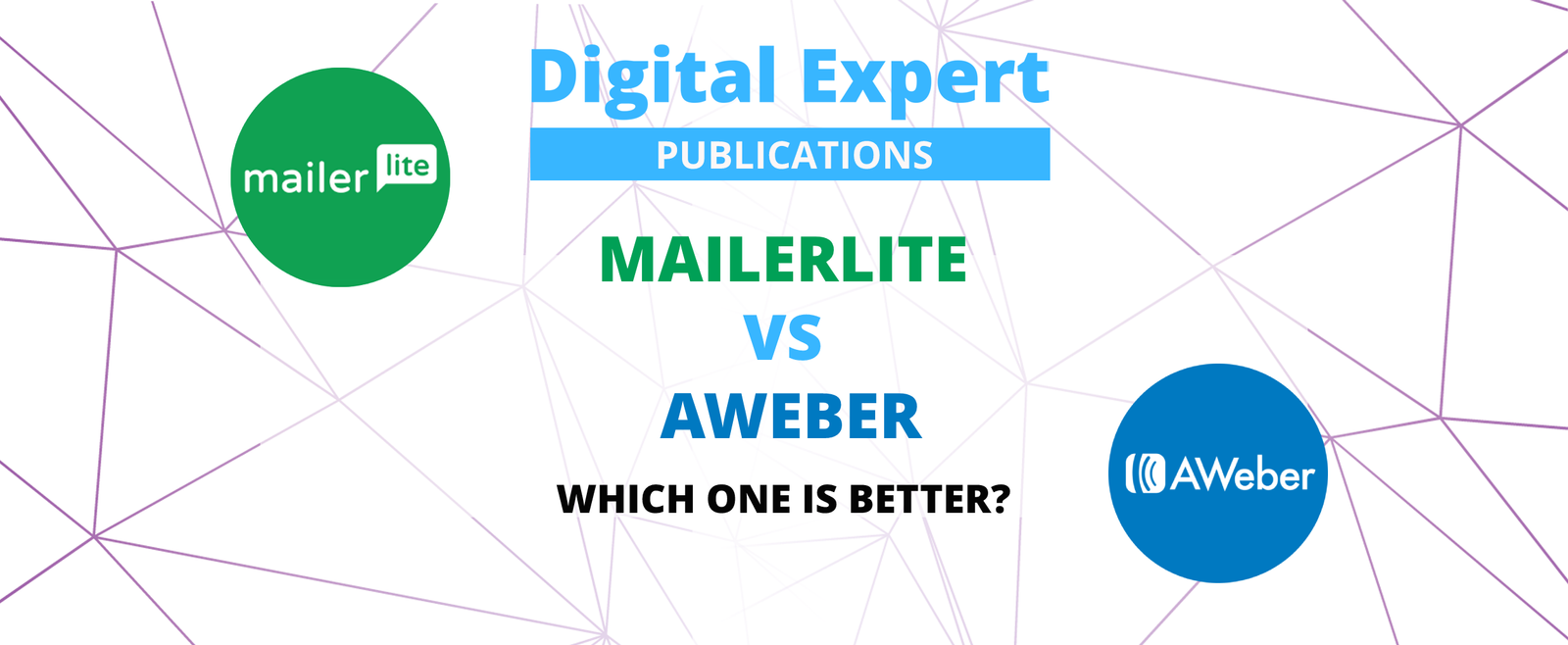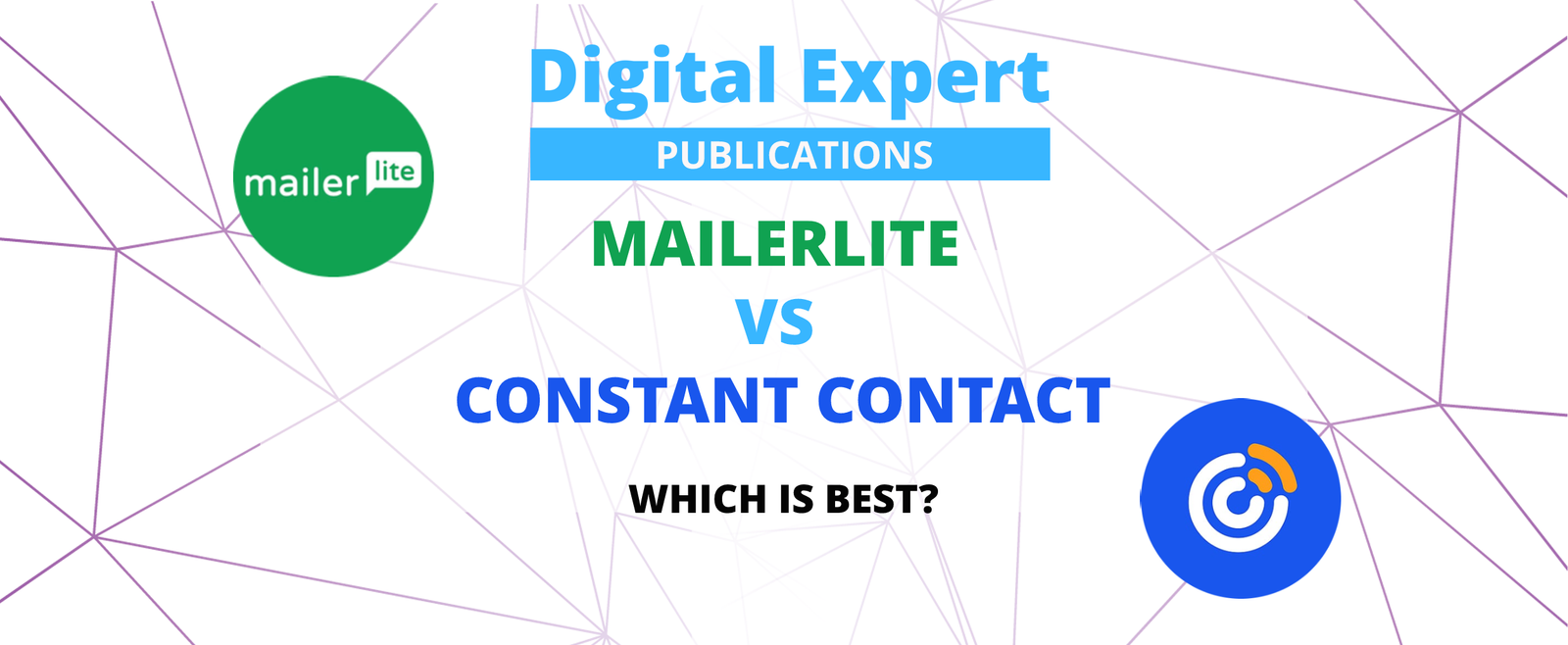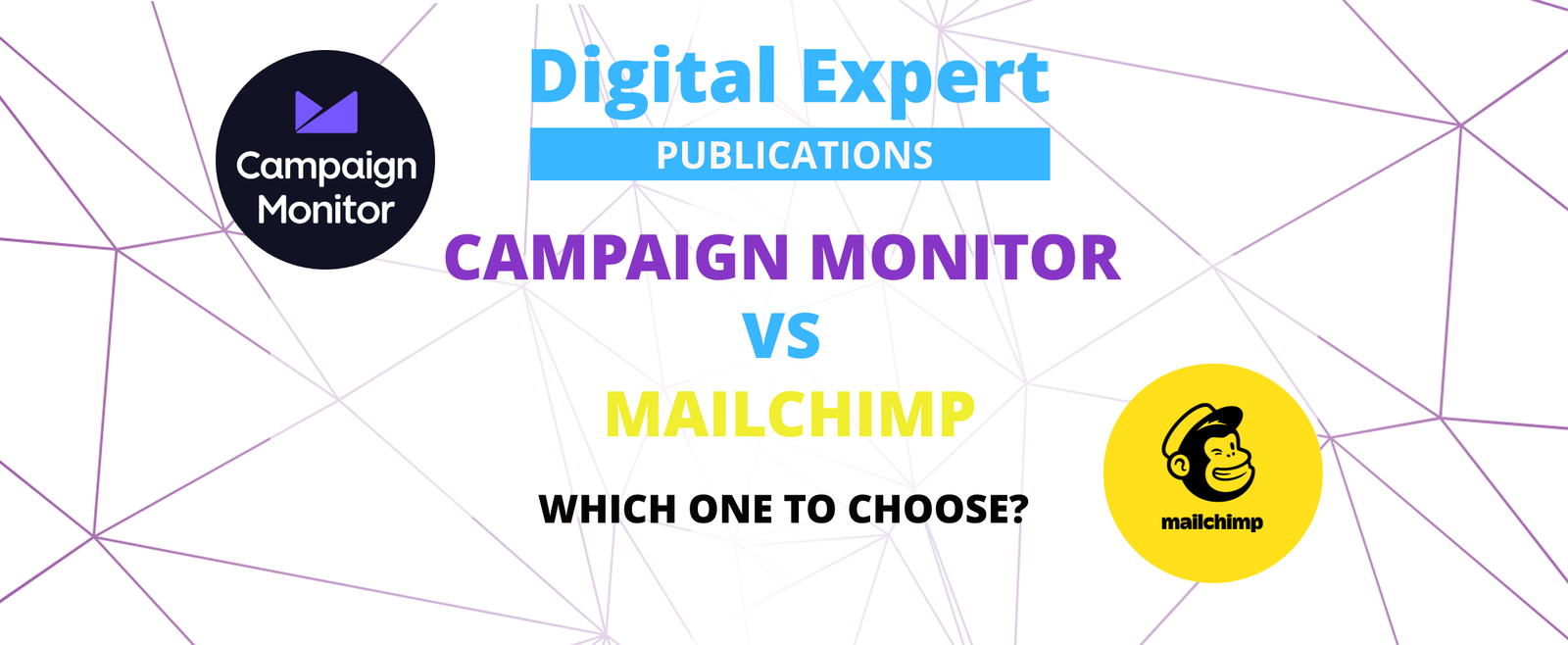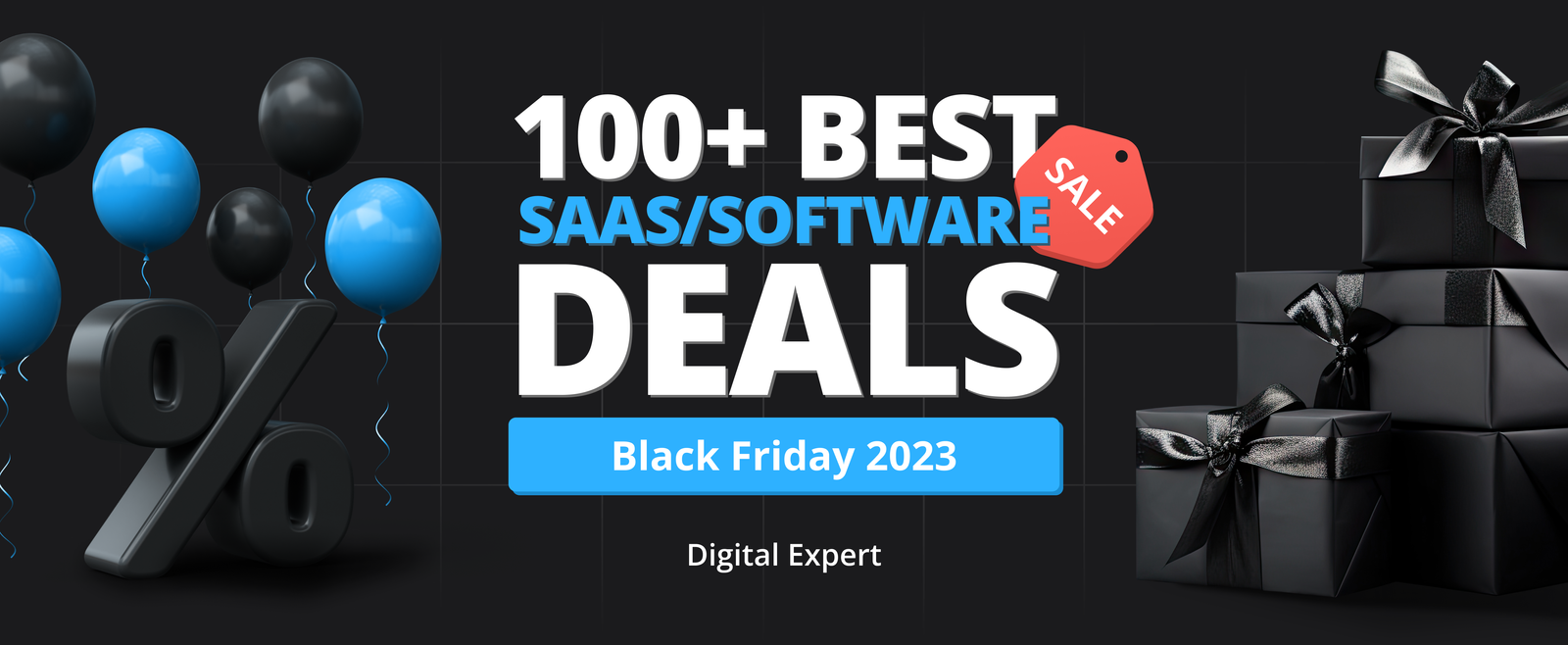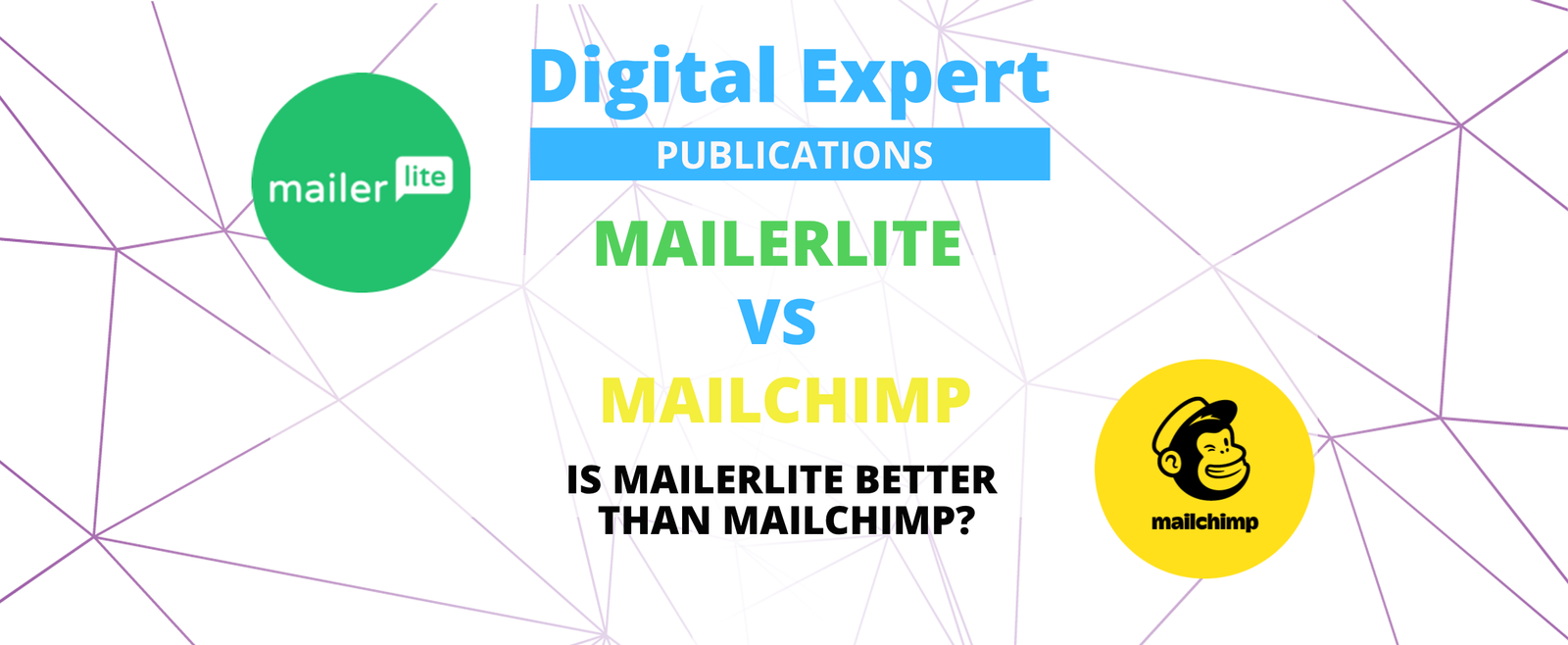Introduction
In the digital age, email marketing has emerged as a critical component of business promotion. The success of a company can be greatly impacted by its ability to engage with customers via email.
Constant Contact and Mailchimp are two of the most well-liked email marketing solutions currently on the market. Although both systems provide comparable services, Constant Contact stands out as the superior choice for companies trying to get the most out of their email marketing campaigns.

In order to highlight the distinctive features and advantages that make Constant Contact the superior option, we shall compare Constant Contact with Mailchimp in this article.
List management features
1. Contact List Management: Users of Constant Contact and Mailchimp can manage their email lists by adding new subscribers, importing contacts from other sources, and segmenting lists according to predetermined criteria.
2. Constant Contact provides more sophisticated segmentation possibilities than Mailchimp does. Users of Constant Contact can divide their lists into different categories based on information like engagement rates, demographics, and past purchases. Comparatively speaking, Mailchimp's segmentation possibilities are more constrained.
3. Custom Fields: Users can include custom fields in their email lists using Constant Contact as well as Mailchimp. The types of custom fields that can be added, such as date fields, drop-down menus, and text areas, are more flexible with Constant Contact.
4. Constant Contact provides more comprehensive list hygiene features than Mailchimp. Users may automatically delete duplicates, bounces, and unsubscribers from their lists with Constant Contact. These capabilities are also available in Mailchimp, although with less choices for personalization.
5. GDPR Compliance: To make sure that subscribers have provided consent to receive emails, Constant Contact and Mailchimp both offer GDPR compliance tools. Constant Contact offers more sophisticated GDPR compliance solutions, including customisable GDPR permission forms and GDPR consent tracking.
List Management Features |
Constant Contact |
Mailchimp |
Contact List Management |
Yes |
Yes |
Segmentation |
Advanced |
Limited |
Custom Fields |
More flexible |
Less flexible |
List Hygiene |
Robust |
Adequate |
GDPR Compliance |
Advanced |
Basic |
As you can see, Constant Contact offers list management options that are more sophisticated and adaptable, particularly when it comes to segmentation and GDPR compliance. Even said, Mailchimp still offers sufficient list management tools that can be useful for startups or users with basic requirements.
Templates and design
Templates and design are essential elements for producing eye-catching and expert emails when it comes to email marketing. Both Constant Contact and Mailchimp offer a large choice of themes and design capabilities, although Constant Contact has a little lead in this category.

Constant Contact makes it simpler for businesses to generate and design expert-looking emails and landing pages with a greater range of templates, more sophisticated customization options, and a more user-friendly drag-and-drop editor.
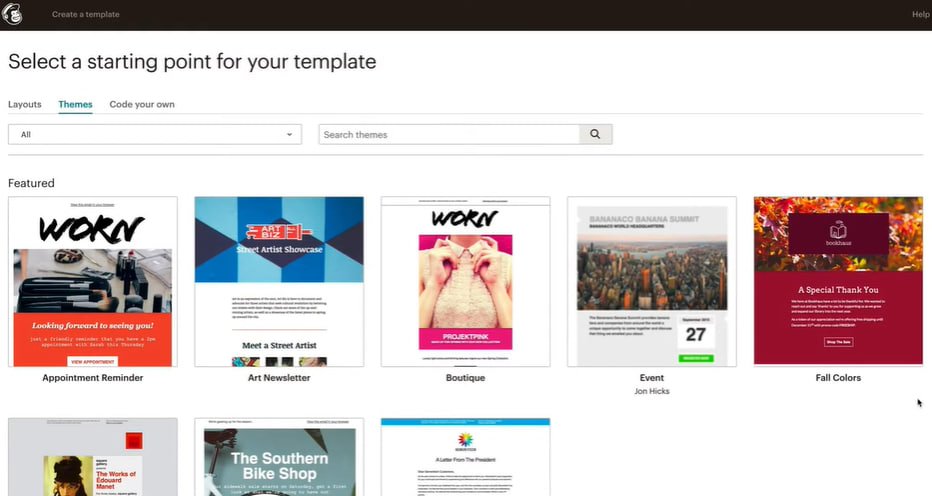
Constant Contact is the superior option for companies trying to make a significant visual impact with their email marketing campaigns, even though Mailchimp still provides a high level of customisation and a variety of templates.
Templates and Design Features |
Constant Contact |
Mailchimp |
Email Templates |
Large selection, including industry-specific templates and mobile-responsive designs |
Wide range of templates |
Customization |
More options for customization, such as the ability to add custom code and save custom templates |
High level of customization |
Drag-and-Drop Editor |
More user-friendly and intuitive editor |
Similar level of editor functionality |
Landing Page Design |
More advanced landing page builder |
Adequate landing page builder |
Image Library |
More advanced image editing options, such as cropping and resizing |
Basic image library |
Reporting and analytics
The ability to track the success of programs and make data-driven decisions is one of the key benefits of email marketing reporting and analytics. While Constant Contact and Mailchimp both provide sophisticated reporting and analytics services, Constant Contact provides a higher level of analysis.
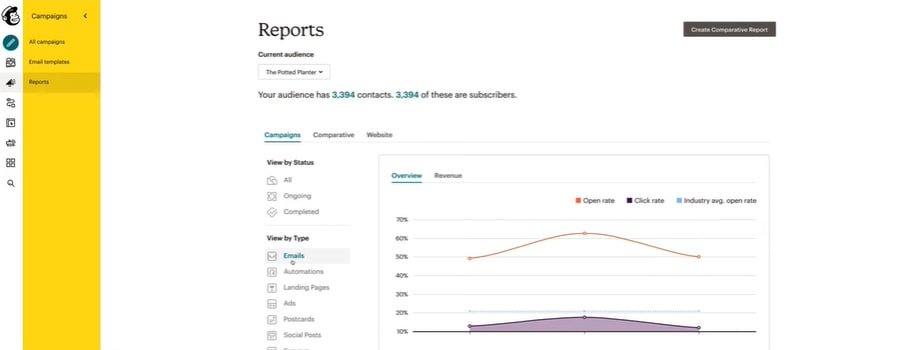
Constant Contact offers organizations a plethora of data regarding the effectiveness of their email marketing with tools like engagement statistics, contact growth analytics, and thorough campaign summaries. Also, Constant Contact's reporting dashboard is straightforward for organizations to access and use, making it easy to comprehend data.
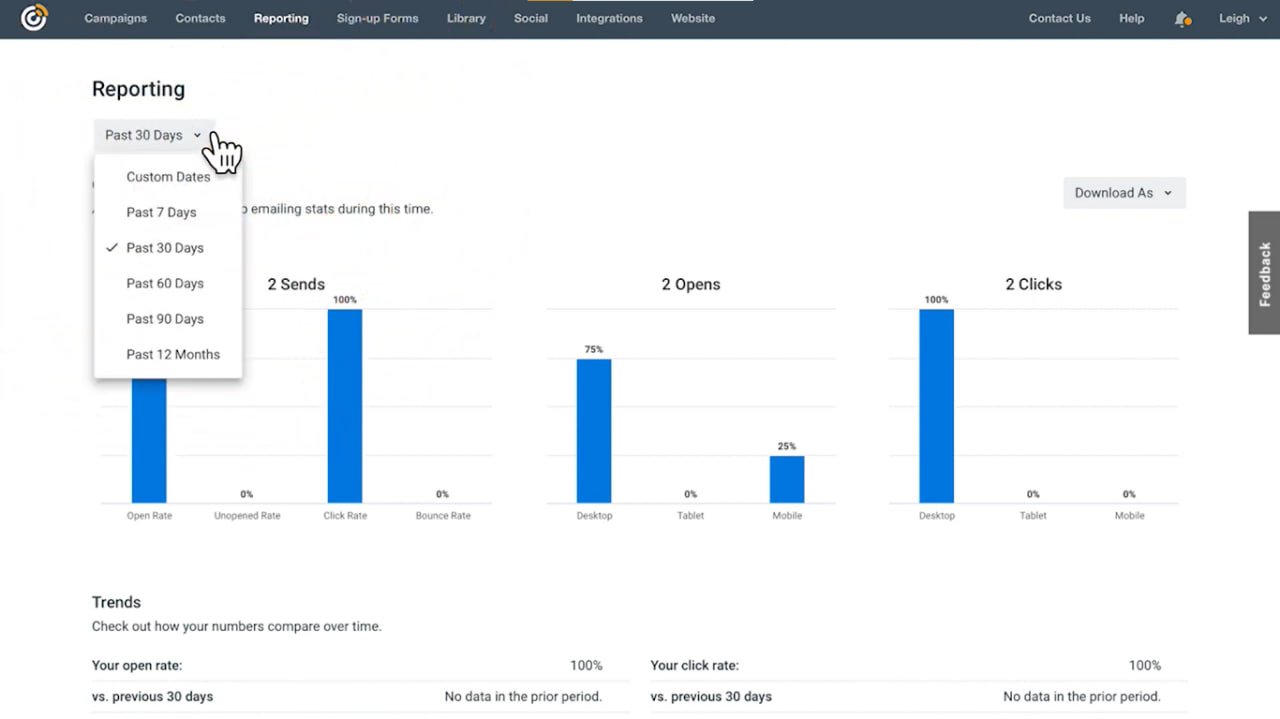
Constant Contact is the best alternative for companies wishing to acquire more in-depth understanding of the efficacy of their email marketing efforts, even though Mailchimp still offers appropriate reporting and analytics services.
Deliverability
Deliverability is a crucial aspect of email marketing since companies must make sure their messages reach the right recipients. Deliverability is a key concern for both Constant Contact and Mailchimp, and both companies have put safeguards in place to help ensure that emails are effectively delivered. Constant Contact, however, has a little better track record than Mailchimp for deliverability.

A specialized deliverability team at Constant Contact keeps a close eye on email delivery rates and works to address any problems. To aid increase deliverability, they also provide services like list cleanliness tools and a spam scanner. Email deliverability can be enhanced through Constant Contact's strong connections with major email providers like Gmail and Yahoo.
Although Mailchimp also provides a spam detector and list hygiene tools, it could not have the same degree of committed resources or deliverability reputation as Constant Contact. This might have an impact on Mailchimp-using companies' email delivery rates.
Overall, even though Mailchimp and Constant Contact both take deliverability seriously and have safeguards in place to help ensure successful email delivery, Constant Contact has a marginally better reputation for deliverability, making it the better option for companies looking to maximize the effectiveness of their email marketing campaigns.
Pricing
When selecting an email marketing platform, price is an important aspect to take into account. Both Constant Contact and Mailchimp provide a variety of price tiers to accommodate companies of all sizes and requirements.
Businesses with up to 2,000 subscribers and 10,000 monthly email sends are eligible for Mailchimp's free plan. With prices rising as the number of subscribers and email sends rises, their subscription plans begin at $9.99 per month for up to 500 members and up to 5,000 email sends per month.
Along with a variety of subscription programs starting at $20 per month for up to 500 subscribers, Constant Contact also provides a free trial period. But, as the quantity of subscribers and email messages increases, their pricing rises more quickly than Mailchimp's.
Ultimately, despite the fact that both Constant Contact and Mailchimp have a variety of pricing options, Mailchimp might be more affordable for companies with smaller email lists than Constant Contact might be for those with larger email lists. Businesses should assess their email marketing requirements and spending limits to decide which platform delivers the greatest value for their money.
Pricing Plans |
Constant Contact |
Mailchimp |
Free Trial Period |
Yes |
Yes |
Free Plan |
No |
Yes |
Starting Price (500 subscribers) |
$20/month |
$9.99/month |
Starting Price (2,500 subscribers) |
$45/month |
$49.99/month |
Starting Price (5,000 subscribers) |
$65/month |
$74.99/month |
Price per Additional 500 Subscribers |
$5/month |
$10/month |
Price per Additional Email Sends |
Based on plan |
Based on plan |
As you can see, Constant Contact and Mailchimp each provide a variety of price options to accommodate various business sizes and needs. Constant Contact does not have a free plan but does have a longer free trial time, whereas Mailchimp offers a free plan for companies with smaller email addresses.
Constant Contact is more expensive for companies with larger email lists since its price plans increase more quickly than Mailchimp's do as the number of subscribers and email sends rises. Nonetheless, based on the individual plan chosen, both platforms allow price scaling for increased subscribers and email sends.
Integrations
As they enable companies to connect their email marketing with other tools and platforms they may be utilizing, integrations are a crucial factor to take into account when selecting an email marketing platform. A variety of interfaces with well-known tools like CRM systems, social media networks, and e-commerce platforms are provided by both Constant Contact and Mailchimp.

Together with a variety of other connectors via their API, Mailchimp offers more than 300 integrations with well-known programs like Salesforce, Shopify, and WordPress. Businesses can link Mailchimp with even more products thanks to their mobile app and Zapier connectors.
While Constant Contact supports a variety of well-known tools including Salesforce, QuickBooks, and Facebook, it does it with fewer connectors than Mailchimp. Additionally, they provide mobile apps for on-the-go email marketing and Zapier connectors.

Generally speaking, Mailchimp provides more connectors than Constant Contact, giving it a more flexible platform for companies wishing to integrate their email marketing with other tools and platforms. Nonetheless, both platforms include interfaces with well-known tools and services, so companies should take their unique integration requirements into account when selecting a platform.
.
Conclusion
As well-liked email marketing platforms, Constant Contact and Mailchimp provide a variety of features and functionalities for companies of all sizes. Nonetheless, it is obvious that Constant Contact offers a number of advantages over Mailchimp when comparing the many features of the two platforms.
First off, Constant Contact provides superior list management tools, including tools for list segmentation, list expansion, and autoresponder emails. They also provide more customization choices than Mailchimp and a bigger selection of themes and design alternatives.
Constant Contact also offers more sophisticated reporting and analytics features, enabling organizations to monitor the success of their email marketing campaigns and take informed decisions. Also, they outperform Mailchimp in terms of deliverability rates, ensuring that more emails are delivered to subscribers' inboxes.
Last but not least, while Constant Contact offers a longer free trial period and is a more scalable platform for larger email lists, with more reasonable pricing per new subscribers and email sends, Mailchimp may be more cost-effective for businesses with smaller email lists.
Overall, Constant Contact is a superior choice for companies searching for a platform with extensive list management, design, reporting, deliverability, and price features than Mailchimp, even though both companies provide a variety of tools and capabilities for email marketing.
FAQ
The cost of Constant Contact and Mailchimp can vary depending on the specific features and plans you require, but in general, Mailchimp is considered to be the more affordable option for most small businesses and individuals.
Constant Contact does not directly integrate with Mailchimp, as they are two separate email marketing platforms. However, you can export your email lists from Constant Contact and import them into Mailchimp if you wish to switch platforms.
Both Constant Contact and Mailchimp are good options for small teams with basic email marketing needs. However, Mailchimp is generally considered to be the more affordable and user-friendly option with a wider range of integrations and features, making it a good choice for most small businesses.
Both Constant Contact and Mailchimp offer a range of professionally designed email templates that can help you create visually appealing campaigns. However, Constant Contact is often considered to have more pre-designed templates and easier customization options, making it a better choice if beautiful templates are a top priority for you.
Both Constant Contact and Mailchimp have user-friendly interfaces, but Mailchimp is often considered to be more intuitive and simple to navigate, especially for beginners, with clear labeling and easy-to-use drag-and-drop features.




